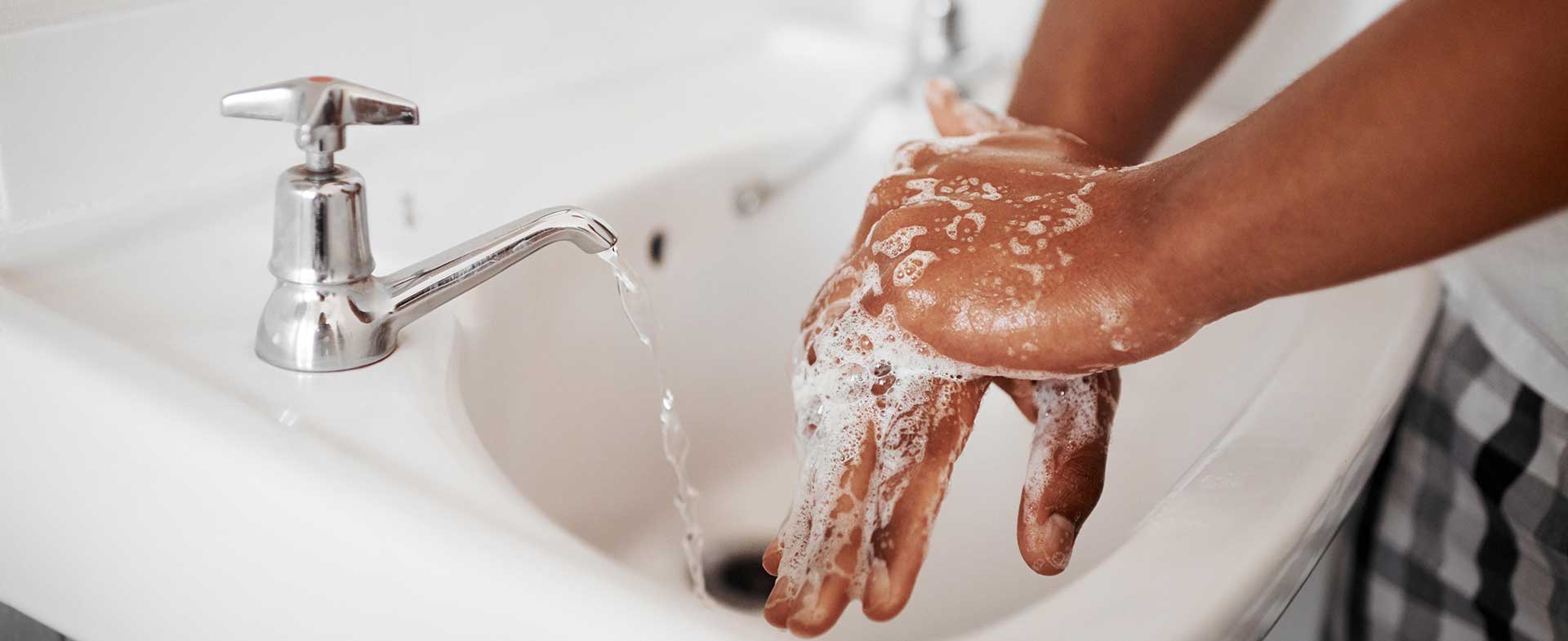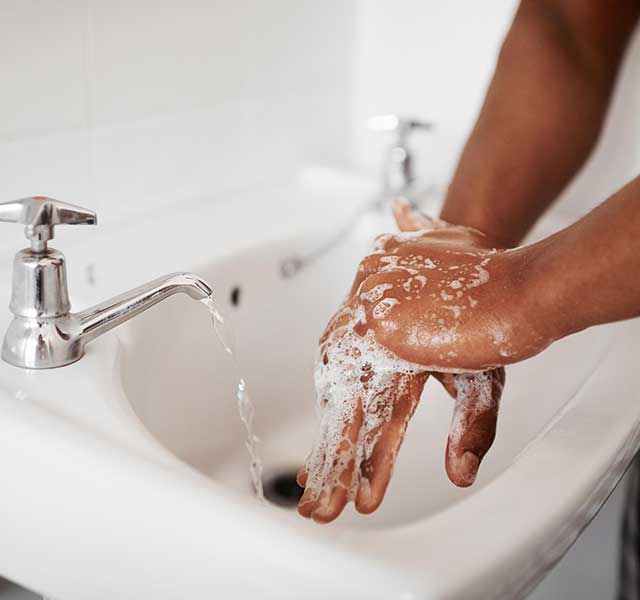It’s the number one way to protect yourself and your family from germs – from those causing foodborne illness to the common cold, influenza and even the quickly spreading coronavirus. Yet, the advice sounds so simple. Almost too simple to be what stands between sickness and health.
And you’ve certainly heard it before, probably since you were a child: Wash your hands.
As common sense as this precaution may seem, research shows that people still need reminders to do this quick act of basic hygiene. While 92 percent of Americans say they believe it's important to wash their hands after using a public restroom, only 66 percent of Americans say they actually do so. As for washing with soap, nearly 70 percent admit they've skipped the suds and just rinsed with water.
The spotlight is on handwashing once again, as public health officials worldwide continue to monitor the coronavirus outbreak that began in China recently.
While the information regarding the spread of coronavirus (officially known as 2019-nCoV) and its effects continue to evolve, health officials were already watching this year’s flu season closely and recommending people stay vigilant to prevent passing along germs. In fact, flu activity in Michigan remains widespread.
Consider this: There are currently just a handful of confirmed cases of coronavirus in the U.S. to date, while it’s estimated that between 180,000 – 310,000 people will be hospitalized with the flu. (Friendly reminder: If you haven’t had your flu shot yet, it’s not too late. The season typically runs from October to April, and peaks in February.)
What You Can Do To Stop The Spread of Viruses
Hospitals and healthcare providers are doing what they can to monitor and contain the spread of coronavirus, and are working in conjunction with partners at the CDC and local health departments.
“As a precaution, we are screening patients for any recent travel to and from China, symptoms consistent with respiratory illness like fever, cough and shortness of breath, or any possible exposure to individuals being evaluated for the coronavirus,” says Geehan Suleyman, M.D., an infectious disease specialist at Henry Ford Health. “We are asking any patients and visitors with respiratory illness to wear a mask upon arrival at our facilities.”
How can you do your part in protecting yourself and preventing the spread of viruses? Follow these tips:
- Wash your hands often and with soap and water. If soap and water are not available, use an alcohol-based hand sanitizer.
- Avoid touching your eyes, nose and mouth with unwashed hands.
- Avoid close contact with people who are sick.
- Stay home if you are sick.
- Cover your cough or sneeze with a tissue or into your sleeve – not your hands. Throw away the tissue in the trash.
- Clean and disinfect frequently touched objects and surfaces.
Handwashing Best Practices
Studies show that less than 5 percent of people are washing their hands properly. Here’s what you need to know about when and how you should be washing your hands.
When To Wash Your Hands:
- Before, during, and after preparing food
- Before eating food
- Before and after caring for someone at home who is sick with vomiting or diarrhea
- Before and after treating a cut or wound
- After using the toilet
- After changing diapers or cleaning up a child who has used the toilet
- After blowing your nose, coughing, or sneezing
- After touching an animal, animal feed, or animal waste
- After handling pet food or pet treats
- After touching garbage
How To Wash Your Hands:
- Wet hands with running water.
- Lather back of hands, fingers and palms with soap.
- Scrub hands for at least 20 seconds (enough time as it takes you to hum “Happy Birthday” twice”).
- Completely rinse hands under running water.
- Dry hands with clean towel or air dry them.
If you can’t wash your hands with soap and water, using alcohol-based hand sanitizer that contains at least 60 percent alcohol is recommended. Carrying a small bottle with you is a smart idea for those times you don’t have access to soap and water.
For more information on the flu and what to do if you experience symptoms, visit henryford.com/flu. Also, check out our answers to FAQs about the coronavirus.
To find a doctor at Henry Ford, visit henryford.com or call 1-800-HENRYFORD (436-7936).
Dr. Geehan Suleyman specializes in infectious diseases and is the Medical Director of Infection Prevention at Henry Ford Hospital.



